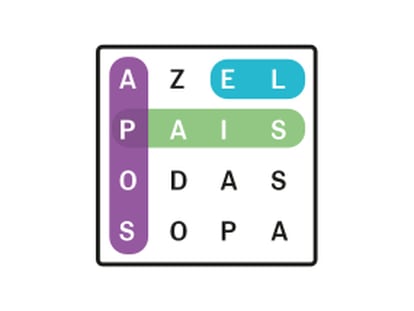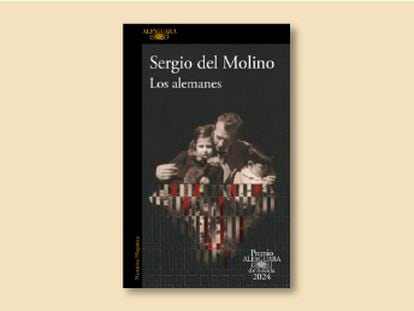Cable en el que Anthony Wayne y María Graciela Ocaña discuten sobre la corrupción en la sanidad
| ID: | 189490 |
| Date: | 2009-01-29 19:00:00 |
| Origin: | 09BUENOSAIRES96 |
| Source: | Embassy Buenos Aires |
| Classification: | UNCLASSIFIED |
| Dunno: | |
| Destination: | VZCZCXYZ0000 RR RUEHWEB DE RUEHBU #0096/01 0291900 ZNR UUUUU ZZH R 291900Z JAN 09 FM AMEMBASSY BUENOS AIRES TO RUEHC/SECSTATE WASHDC 2943 INFO RUCNMER/MERCOSUR COLLECTIVE |
UNCLAS BUENOS AIRES 000096 SIPDIS E.O. 12958: N/A TAGS: PGOV, PREL, SOCI, TBIO, ECON, AR SUBJECT: Argentina's Minister of Health - Crusader against Corruption 1. (U) Summary: Ambassador Wayne and Health Minister Maria Graciela Ocana discussed her Ministry's efforts to fight corruption within Argentina's public health system, the importance of drug rehabilitation programs, and prospects for future collaboration on health issues during a meeting on January 16. Ocana expressed interest in the changes that President Obama would make to the U.S. healthcare system. She acknowledged that Argentina's 2001 economic crisis had hurt its healthcare system, which is also challenged by financial malfeasance, increased demand, and heavy costs associated with long-term care. They also discussed Argentina's growing drug consumption problem. The Ambassador suggested that many of these issues could be discussed with U.S. experts via digital video conferences, an idea Ocana readily supported. The meeting demonstrated new opportunities to engage the GOA on healthcare issues where real needs exist. End Summary. --------------------------------------------- --- Financial Malfeasance Prevents Healthcare Access --------------------------------------------- --- 2. (U) The Ambassador commended Ocana on her efforts to fight corruption within Argentina's public health system. (Ocana has consistently called for greater transparency in the procurement of pharmaceuticals by the Argentine agency responsible for providing medicines to senior citizens following allegations of price fixing and overcharging by suppliers, many of whom were also reportedly prominent campaign contributors in 2007. In November, the head of the agency resigned at the request of the government.) She confided that it is challenging to run an efficient Ministry when the money designated for healthcare goes "elsewhere." She added that several sectors are not big fans of her Ministry and confided that she was facing a difficult battle with Argentine pharmaceutical companies. 3. (U) Ocana also told the Ambassador she has uncovered corruption, particularly in procurement of services and medications. In addition, there have been recent incidents of pharmaceutical laboratories manufacturing medicines that were either fraudulent or of inadequate dosages. Centralizing the verification system is essential to avoiding fraud, she said. The Ambassador noted that in the United States, there exist strong procurement procedures and systems which could be shared with Argentina. He noted that the U.S. private sector could be very helpful partners in this area. Ocana said she had had a very good meeting with Merck which touched on this, and expressed her interest in collaborating with U.S. experts to improve the Ministry's oversight capabilities. ----------------------------- Opportunities for Cooperation ----------------------------- 4. (U) Ocana said she is interested in seeing what changes President Obama will make to the U.S. healthcare system. She added that she would find it useful for both countries to share their experiences in healthcare reform. She cited the unions' "Obras Sociales" ("Social Works") system as an example, noting that it does not have an analogue in the United States. She explained that the Social Works system is run by workers' unions that provide health coverage to their affiliates. The Ministry of Health publishes basic standards and conditions about the provision of health services and the Social Works system is in charge of putting this into practice. (Comment: This system does not guarantee good healthcare and provides opportunities for corruption.) The Ambassador underscored that our healthcare system is based on a large private role. 5. (U) The Minister also relayed her interest in promoting a Federal Health Law to guarantee universal access to Argentina's healthcare system. (Comment: While the current system guarantees universal healthcare, access to medical care for lower socio-economic populations remains inadequate. The law would focus on programs for the reduction of mother and infant mortality, and the reduction of deaths caused by both communicable diseases such as tuberculosis, Chagas, HIV-AIDS, dengue, yellow fever, as well as non-communicable diseases caused by high blood pressure, diabetes, mental health problems, drugs and tobacco.) 6. (U) Ocana acknowledged that Argentina's 2001 economic crisis hurt Argentina's healthcare system. She remarked that the only good result to come out of Argentina's economic crisis was that Argentines learned they can work together to face their problems. She added that there is a growing healthcare crisis in Argentina due to increasing demand. To address this, she said the Ministry is focused on improving primary care in Buenos Aires City, and they hope to build ten new hospitals in critical zones by 2011, five with Argentine financing, two with Spanish, and three with European Union financing. ----------------------- Increased Drug Problems ----------------------- 7. (U) The Ambassador mentioned his personal experience of having observed children addicted to paco, the local version of crack, in a previous visit to villas, or slums, in Ciudad Oculta and along the Riachuelo. Ocana agreed that this was a serious problem, describing it as a sickness which requires medical attention. She said her Ministry is hoping to work with the provinces to expand treatment for drug addiction, but noted that the National Center for Drug Addiction has only 100 in-patient beds and limited facilities for walk-ins. She is working with the Ministries of Social Development and of Justice, Security, and Human Rights to develop better treatment programs. 8. (U) Ocana commented that even when children enter the few available treatment programs, they often do not remain and leave uncured. Hospitals that provide emergency treatment either do not, or are unable to, provide care for youth in need of additional treatment. The Ambassador mentioned the positive work of the Argentine NGO, Mothers Against Paco, in addressing drug addiction, and cited their struggles to get more local, long-term treatment centers. He noted that the United States has significant experience in drug treatment programs, and offered to see if the Embassy could bring together Argentine and U.S. healthcare experts for digital video conferences to share experiences and ideas, an idea that Ocana enthusiastically supported. --- BIO --- 9. (U) Ocana was appointed head of the Ministry of Health by President Cristina Fernandez de Kirchner in December 2007. In CFK's 2008 State of the Union address, Ocana was the only Minister to be singled out for praise for her work. According to local press reports, Ocana has gained substantial autonomy because of her strong relationship with the President, but her relationship with Nestor Kirchner is not as solid. Still, she argued that the current government, flaws and all, is overall the best Argentines have had since the return of democracy. Prior to assuming her current post, she was head of PAMI, the National Institute for Social Services for Retired Workers. From 1999-2003, Ocana served as a member of the Lower House (1999 to 2003) as part of the Frepaso. In this capacity, she was active in investigating corruption in former President Menem's administration. She worked with Civic Coalition leader Elisa Carrio in the Money Laundering Preliminary Report, and in 2001 she joined Carrio's party, ARI. Ocana was subsequently evicted from ARI after joining the Kirchner administration. Ocana (nicknamed "la hormiguita", or "the little ant") is well-known for her hard work and commitment to the causes she undertakes. Ocana was born in 1960 in San Justo, Argentina. ------- Comment ------- 10. (U) Ocana is tackling a difficult situation, worsened by entrenched corruption, a dramatic increase in drug use, and a Byzantine political situation that complicates public health management issues. U.S. public and private experience with procurement procedures, drug treatment programs and attempts to provide affordable health care, combined with the availability of Spanish-speaking U.S. experts, provides an opportunity to assist the Health Ministry and engage the GOA where real needs exist. WAYNE |
Traduce este documento »
Traducción automática. Puede que el texto traducido no sea fiel al original
Únete a EL PAÍS para seguir toda la actualidad y leer sin límites.
Suscríbete_










































































